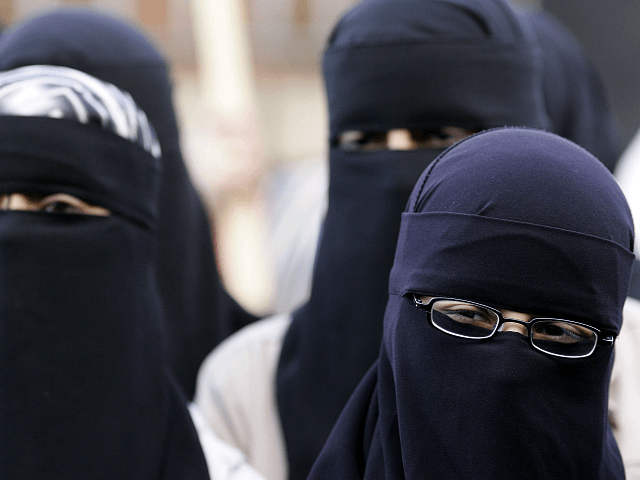Michael Nazir-Ali, the Pakistan-born former Bishop of Rochester, has weighed into the controversy around the burqa to call for a near-total ban on full face veils, supported by former Archbishop of Canterbury Lord Carey.
The senior clergyman told the Mail on Sunday that, while a small minority of women might be choosing to cover their faces voluntarily, that there was no doubt “the burqa or niqab is being weaponised by Islamists to impose what they consider to be ‘Islamic’ character on communities, neighbourhoods and even nations.”
He added: “In Britain, this has serious implications for the freedom of women, but it also has implications for integration and social cohesion. Where there is widespread use of the face veil, there will be greater isolation from one another and a sense of segregation will grow.”
Nazir-Ali, who hails from the small Christian community in Pakistan which faces brutal persecution from both the state and the wider Muslim-majority public, also highlighted the security risks posed by full face veils, observing: “We have all seen how even male terrorists have escaped arrest by donning a burqa and making an effective getaway.
“For reasons of national security, there will be places like Parliament or Whitehall or town halls and council chambers where the burka should not be allowed.”
The clergyman also suggested that airports, schools, and universities were inappropriate venues for the wearing of full face veils, and that, moreover staff and patients at GP surgeries and hospitals and even business people should not be confronted with such barriers to communication.
“Many professions require personal interaction with the client. In business, both the trader and the customer should be able to see one another’s face and to interpret expressions if the transaction is to be mutually beneficial. This is even more true of doctors, dentists, nurses, and paramedics.”
Former Archbishop of Canterbury Lord Carey said he “strongly supported” Nazir-Ali, highlighting the “need to be able to identify people in government buildings, transport centres, and tourist attractions, to take three examples.”
“Security concerns trump cultural rights,” he added.

COMMENTS
Please let us know if you're having issues with commenting.